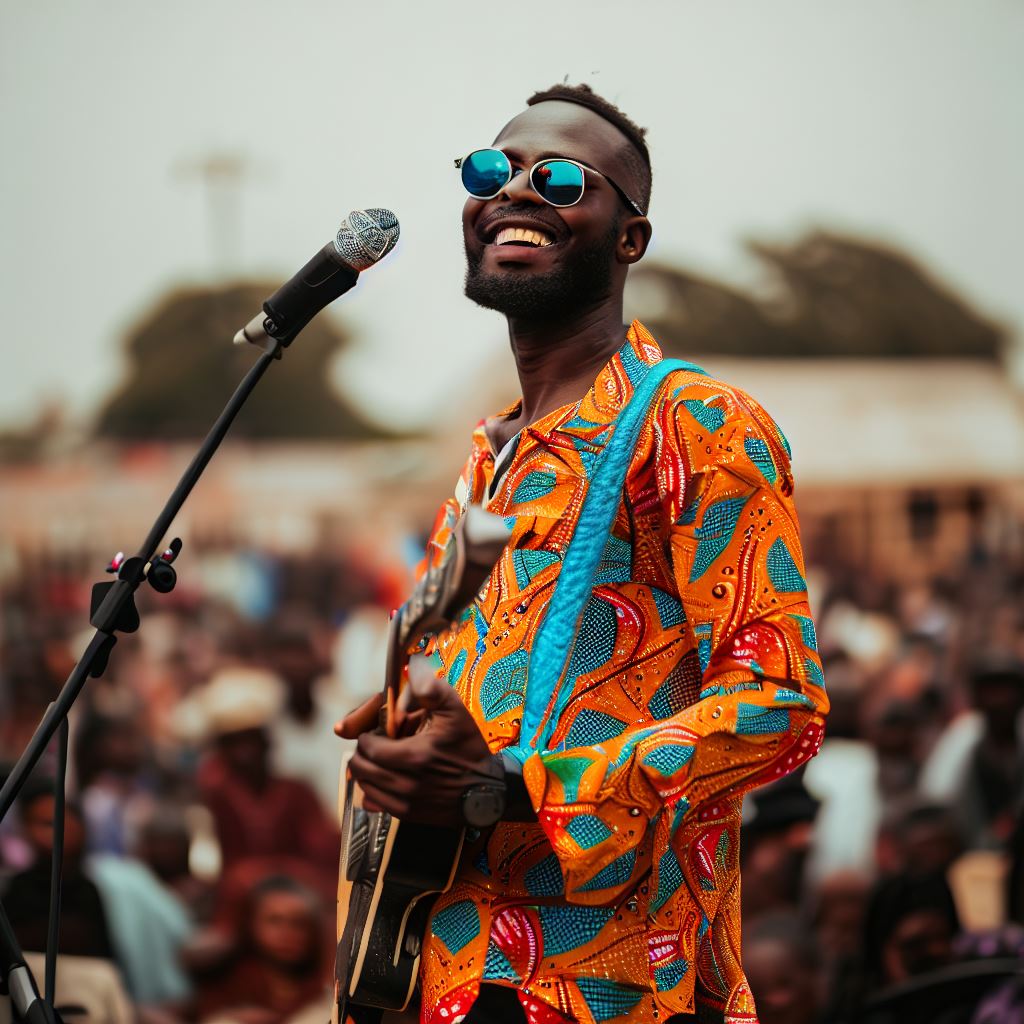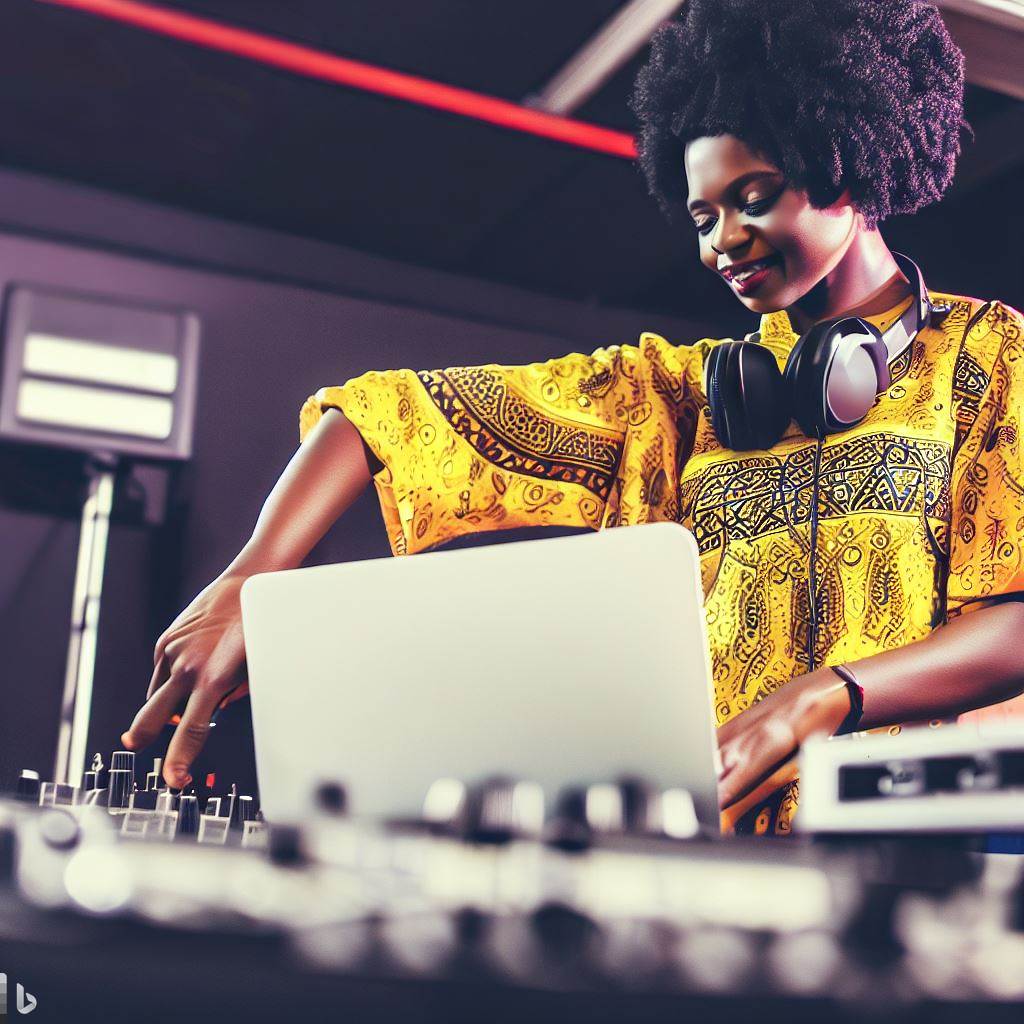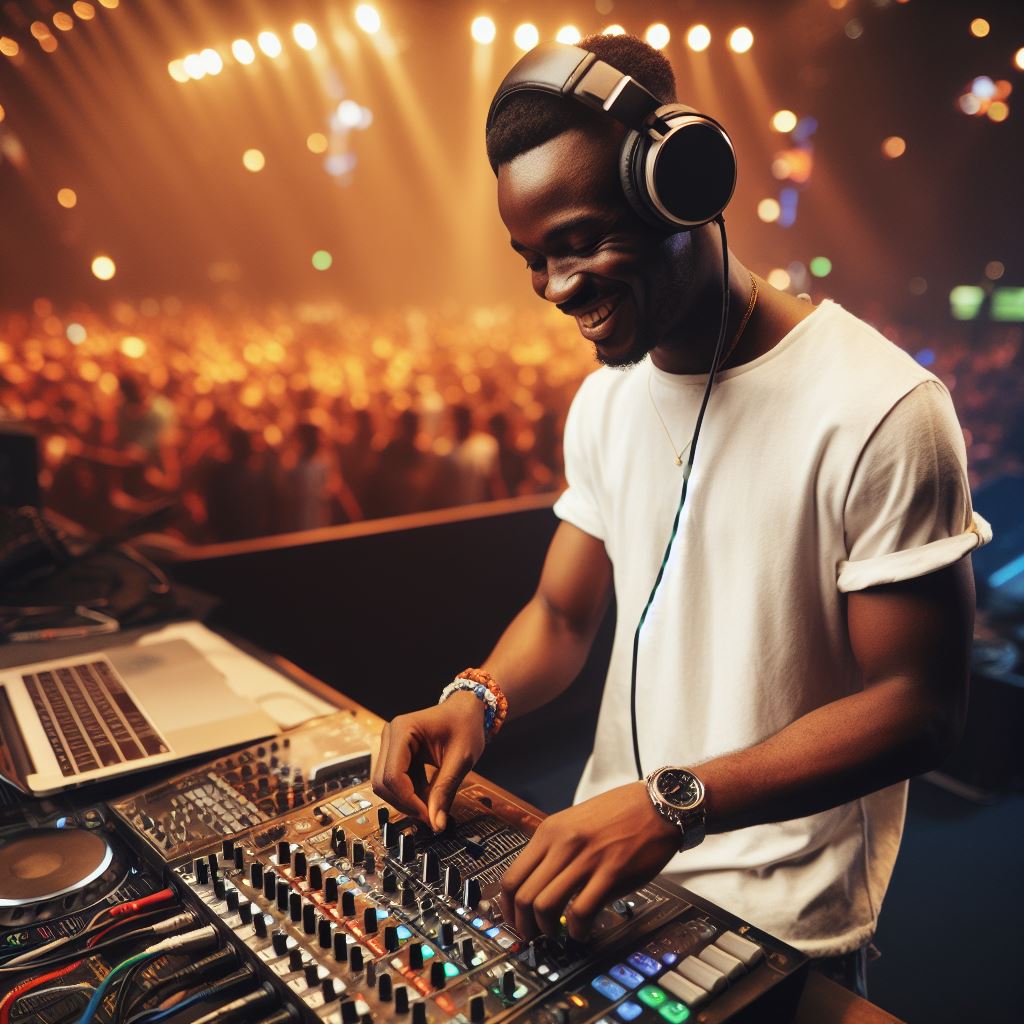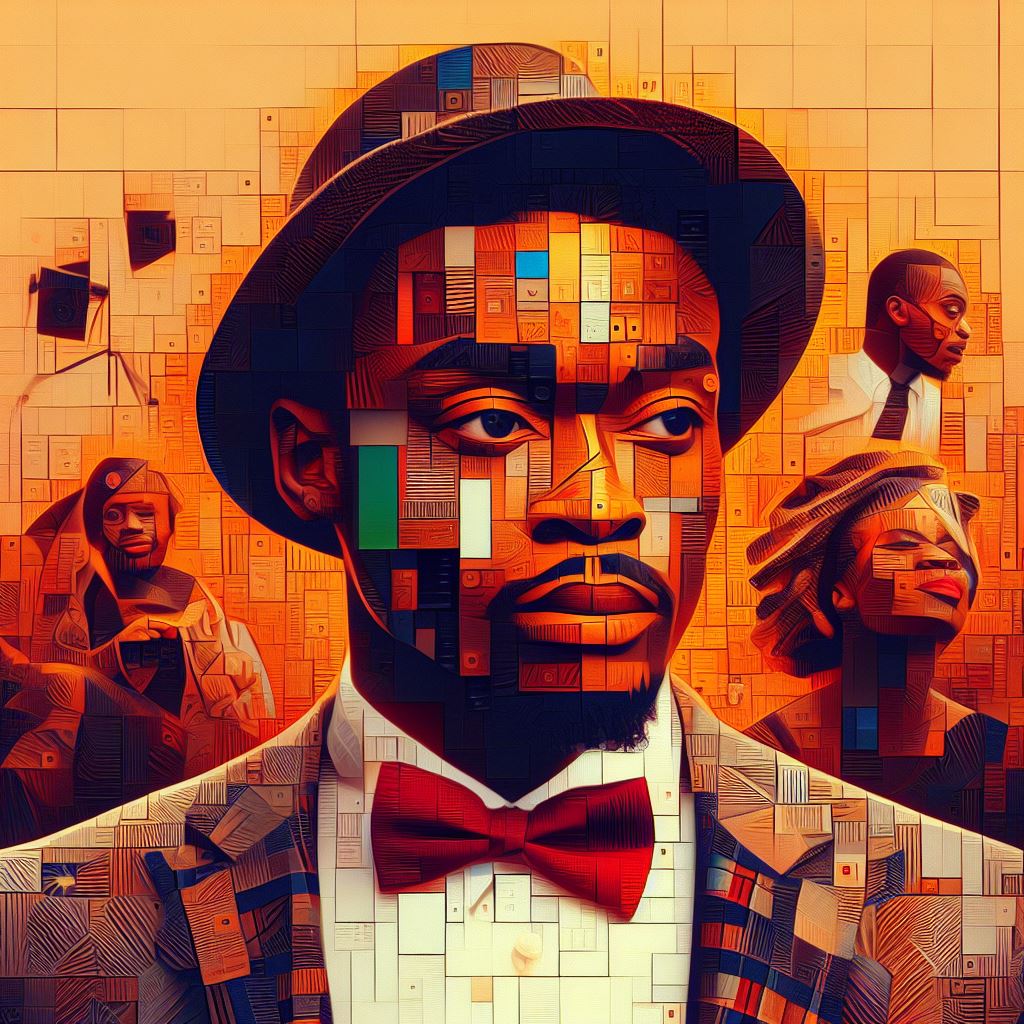Introduction
In Nigeria, poetry and songwriting hold immense importance, as they provide a platform for people to express their emotions, ideas, and experiences.
They serve as vehicles for storytelling, culture, and social commentary, allowing individuals to connect with their roots and communicate their narratives.
The connection between poetry and songwriting in Nigeria is undeniable.
Both art forms share common elements such as rhythm, tempo, and the power of language.
Nigerian poets often incorporate musicality into their verses, creating a lyrical quality that resonates with listeners.
Similarly, songwriters draw inspiration from the emotion and depth found in poetry, infusing their music with poetic imagery.
The nexus between poetry and songwriting in Nigeria is a symbiotic relationship.
Poets have been known to recite their work accompanied by musical instruments, adding an extra layer of beauty and emotion to their verses.
Conversely, musicians often include poetic verses in their songs, elevating the lyrical content and imparting a profound impact on listeners.
With their shared foundations and complementary attributes, poetry and songwriting in Nigeria enhance and enrich each other.
Together, they contribute to the cultural fabric of the nation, preserving traditions, reflecting societal issues, and showcasing the nation’s diverse linguistic heritage.
In short, the nexus between poetry and songwriting in Nigeria is a dynamic and vibrant collaboration.
Both art forms thrive in the country, fueling each other’s creativity and leaving an indelible mark on Nigerian culture.
Through their intertwining influence, poetry and songwriting continue to captivate and inspire audiences, offering a platform for expression and a celebration of Nigeria’s artistic traditions.
Historical Background
Historical roots of poetry in Nigeria
- Poetry has been a part of Nigerian culture for centuries, dating back to ancient civilizations.
- Oral tradition played a significant role in preserving and spreading poetic expressions.
- Griots, or traditional poets, were highly regarded and passed down their knowledge through generations.
- Poetry was used as a form of communication, education, and entertainment in Nigerian society.
- Different regions had their own unique poetic styles, reflecting their cultural diversity and heritage.
Emergence of traditional Nigerian music
- Traditional Nigerian music evolved alongside poetry, complementing each other’s artistic expressions.
- Music was an integral part of social and religious traditions, connecting people through rhythm and melody.
- Indigenous musical instruments like talking drums, xylophones, and flutes were used to create captivating melodies.
- Nigerian music often told stories and conveyed emotions, similar to the narrative elements found in poetry.
- Folk songs and dances played a crucial role in preserving cultural identity and community bonding.
Influence of traditional poetry on songwriting
- Traditional Nigerian poetry heavily influenced song lyrics, providing a rich source of inspiration.
- Poetic techniques such as metaphors, similes, and wordplay were incorporated into songwriting.
- The poetic structure and rhythm of traditional poetry influenced the composition of songs.
- Oral tradition helped in the transmission of poetic elements from one generation to the next.
- Modern Nigerian musicians continue to draw from the deep well of traditional poetry in their songwriting.
Read: Education and Training for Songwriters in Nigeria
Shared Techniques and Themes
Common poetic and storytelling techniques used in Nigerian poetry and songs
- Incorporation of vivid metaphors and similes to convey emotions and experiences.
- Utilization of rhythm and rhyme schemes to enhance the musicality of the words.
- Imagery that paints a vivid picture, bringing the listener or reader into the world being described.
- Employment of repetition to emphasize certain ideas or create a memorable impact.
- Exploration of multiple perspectives and voices to give a multi-dimensional storytelling experience.
- Inclusion of traditional oral storytelling techniques, such as call and response, to engage the audience.
- Creative use of wordplay, puns, and allusions to add layers of meaning to the poems and songs.
- Incorporation of cultural symbols, proverbs, and folklore to preserve and celebrate Nigerian heritage.
- Employment of narrative structures that often follow a beginning, middle, and end format.
- Combination of spoken word, music, and dance to create a holistic artistic expression.
Exploration of themes such as love, social issues, politics, and cultural identity in both forms
Nigerian poetry and songwriting share an evident interest in addressing various themes that resonate with the Nigerian society:
- Love: Both forms consistently explore the complexities of love, celebrating its joys and questioning its challenges.
- Social issues: Poets and songwriters engage with societal problems like poverty, corruption, inequality, and gender issues.
- Politics: Nigerian poets and songwriters often use their artistic platforms to talk about political leadership, activism, and governance.
- Cultural identity: The exploration of Nigerian heritage, traditions, and cultural experiences is a recurring theme in both poetry and songs.
Effect of oral tradition on the lyrical qualities of poetry and songwriting
One cannot ignore the profound impact of Nigeria’s rich oral tradition on the lyrical qualities found in its poetry and songwriting:
- Oral tradition’s influence allows for the use of melodic language, rhythmic patterns, and captivating storytelling.
- The performative nature of oral tradition influences the energetic and engaging delivery of Nigerian poetry and songs.
- The communal experience associated with oral tradition is reflected in the participatory nature of Nigerian poetry and songs.
- Oral tradition’s emphasis on memorization and repetition enhances the memorable and catchy aspects of Nigerian music and poetry.
- Through oral tradition, Nigerian poets and songwriters are able to preserve their cultural heritage and pass it on to future generations.
- The oral tradition’s flexibility allows for improvisation, enabling artists to adapt and respond to ever-changing societal dynamics.
By employing these techniques, exploring diverse themes, and embracing the influence of oral tradition, Nigerian poetry and songwriting continue to flourish as interconnected art forms, weaving stories and emotions into the fabric of Nigerian culture.
Read: Insights into Nigeria’s Indigenous Language Songwriting
Prominent Poets and Songwriters
Famous Nigerian poets and their contributions to the nexus
- Wole Soyinka: The first African Nobel Laureate in Literature, Soyinka’s poetry delves into cultural, political, and societal issues.
- Chinua Achebe: Known for his novels, Achebe also wrote poetry that explored African identity and the impact of colonization.
- Christopher Okigbo: His poetry reflects the experiences of the Nigerian Civil War and addresses themes of loss, love, and nationalism.
- Niyi Osundare: Osundare’s poetry is deeply rooted in Nigerian culture, often highlighting socio-political issues and using vivid imagery.
Influential Nigerian songwriters who have incorporated poetic elements into their songs
- Fela Kuti: An iconic musician and activist, Fela’s songs were a fusion of Afrobeat, jazz, and funk, with powerful lyrics that condemned corruption and oppression.
- Sunny Ade: Often referred to as the King of Juju music, Ade’s songs are characterized by poetic storytelling and social commentary.
- Asa: An accomplished singer-songwriter, Asa’s introspective lyrics touch on personal struggles, love, and societal issues in Nigeria.
- Brymo: Known for his soulful voice and poetic lyrics, Brymo’s songs tackle themes such as love, politics, and the human experience.
Collaborations between poets and musicians
- Femi Osofisan and Orlando Julius: Osofisan, a playwright and poet, collaborated with Julius, a renowned Afrobeat musician, resulting in a powerful fusion of poetry and music.
- Beautiful Nubia and Wole Soyinka: Beautiful Nubia, a folk musician, worked with Soyinka to create thought-provoking music that tells stories and addresses social issues.
- TY Bello and Chinua Achebe: TY Bello, a Nigerian singer-songwriter, incorporated Achebe’s poem “The Second Coming” into her song “The Land is Green,” highlighting the nexus between poetry and music.
These collaborations showcase how poets and musicians in Nigeria have come together to create powerful works of art that engage and inspire audiences.
The fusion of poetic elements in songwriting allows for deeper exploration of themes and emotions, creating a rich and dynamic experience for listeners.
The contributions of these prominent poets and songwriters have been instrumental in bridging the gap between poetry and music in Nigeria.
Their work has not only entertained but also provoked thought and stimulated conversation about important social and political issues.
As the nexus of poetry and songwriting continues to evolve in Nigeria, we can expect more collaborations and innovative expressions of artistic talent.
The blending of these art forms creates a unique platform for self-expression and societal commentary, making it an integral part of Nigerian culture and identity.
Read: Navigating Challenges: Songwriting in Nigeria
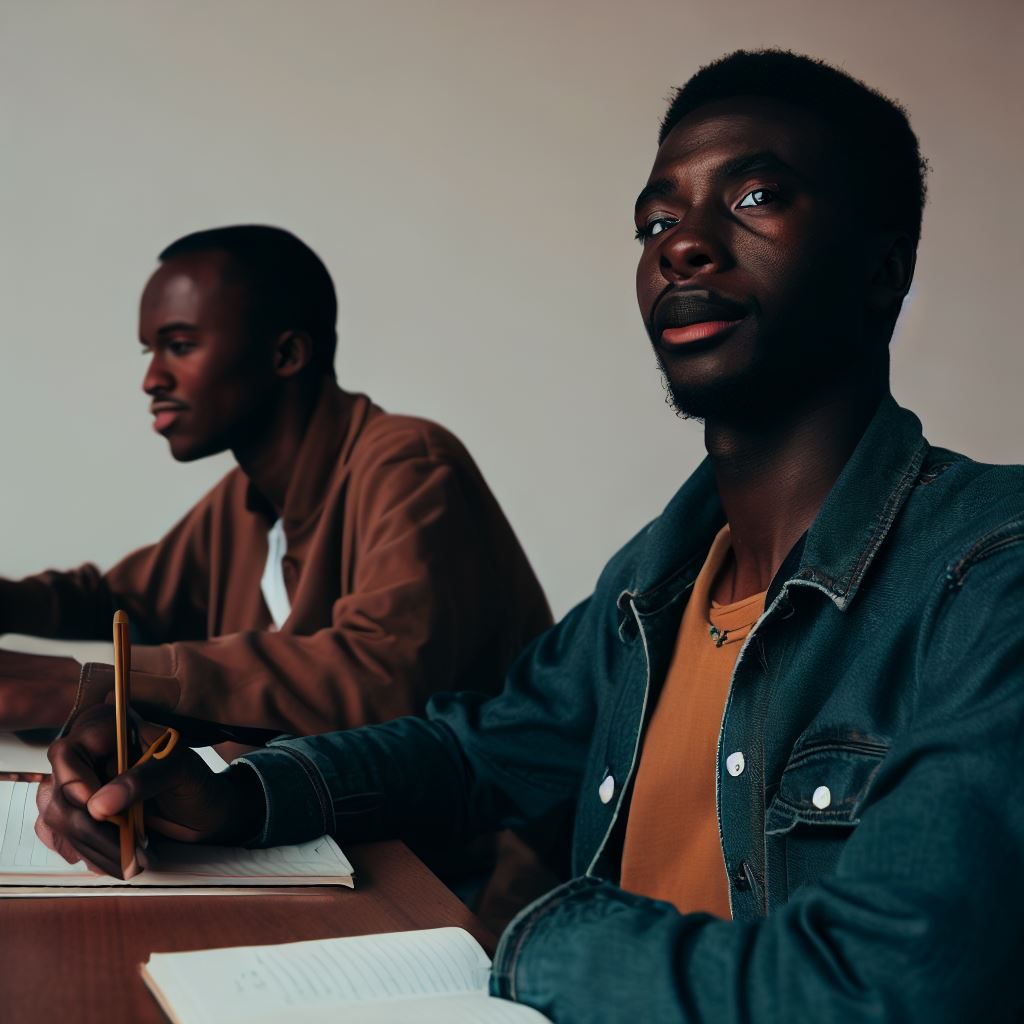
Impact on Nigerian Society
How poetry and songwriting have shed light on social issues in Nigeria
Poetry and songwriting in Nigeria serve as powerful mediums to bring attention to important social issues.
They have helped raise awareness about corruption, poverty, inequality, and other pressing problems.
Artists use their lyrics and verses to express the struggles faced by marginalized communities and advocate for change.
Through their creative works, poets and songwriters have sparked conversations and inspired action within Nigerian society.
Their words have served as a catalyst for social movements and played a crucial role in driving societal progress.
The role of poetry and songs in preserving Nigerian cultural heritage
Poetry and songwriting also play a significant role in preserving Nigeria’s rich cultural heritage.
Traditional folk songs and poetic forms have been passed down through generations, helping to maintain cultural identity.
By incorporating traditional elements in their compositions, artists contribute to the preservation of indigenous languages and customs.
These cultural expressions serve as a link to Nigeria’s history, allowing people to connect with their roots and heritage.
Poetry and songs act as a vehicle for cultural transmission, ensuring that Nigerian traditions and values are not forgotten.
The influence of poetry and songwriting on the Nigerian music industry
Poetry and songwriting have had a profound influence on the Nigerian music industry.
They have provided a platform for artists to express their creativity and contribute to the diverse music scene.
Many successful musicians started their careers as poets or songwriters, honing their writing skills before venturing into singing.
The lyrical depth and poetic techniques found in Nigerian songs have garnered international recognition for the country’s music.
Poetic elements such as metaphors, wordplay, and storytelling have become integral to the Nigerian music industry’s success.
Read: Nigerian Film Hair Stylists: Pioneers in African Cinema
Challenges and Future Prospects
The challenges faced by poets and songwriters in Nigeria
- Limited platforms: Poets and songwriters struggle to find suitable platforms to showcase their work.
- Cultural bias: Traditional norms and values may limit the freedom of expression for poets and songwriters.
- Lack of recognition: Many poets and songwriters go unnoticed, facing difficulty in getting their work acknowledged.
- Financial constraints: Limited financial opportunities make it challenging for aspiring poets and songwriters to sustain their careers.
- Copyright issues: The absence of strong copyright laws exposes poets and songwriters to infringement and piracy.
Potential opportunities for further exploration within poetry and songwriting
- Collaboration: Poets and songwriters can explore collaborative projects to bring their creative talents together.
- Cultural exchange: Embracing different cultures and languages can provide inspiration and expand creative possibilities.
- Literary festivals: Organizing more literary festivals can offer a platform for poets and songwriters to showcase their talents.
- Mentorship programs: Establishing mentorship programs can help aspiring poets and songwriters enhance their skills and gain guidance.
- Government support: Increased funding and incentives from the government can foster growth in the poetry and songwriting industry.
The role of technology in expanding the nexus and reaching broader audiences
- Online platforms: The internet provides poets and songwriters a global platform to share their work and reach a wider audience.
- Social media: Utilizing social media platforms allows poets and songwriters to connect with fans and promote their work more effectively.
- Digital distribution: Digital platforms make it easier for poets and songwriters to distribute and monetize their creations.
- Virtual performances: Live streaming performances enable poets and songwriters to connect with audiences worldwide without physical limitations.
- Collaborative opportunities: Technology facilitates remote collaborations, allowing poets and songwriters to work with artists from different locations.
In brief, despite the challenges faced by poets and songwriters in Nigeria, there are potential opportunities for growth and exploration within the poetry and songwriting industry.
Collaboration, cultural exchange, and government support can pave the way for aspiring artists.
Additionally, technology plays a crucial role in expanding the nexus, offering a platform for poets and songwriters to reach broader audiences.
Through embracing these possibilities, Nigeria can nurture and showcase its diverse artistic talents on a global scale.
Delve into the Subject: Circus Performer Laws and Regulations in Nigeria
Conclusion
The connection between poetry and songwriting in Nigeria serves as a powerful means of cultural expression and storytelling.
It allows for the preservation of traditions, the sharing of narratives, and the exploration of societal issues.
The fusion of poetry and songwriting in Nigeria not only enhances the artistic value of the creative works but also strengthens the cultural identity of the nation.
It showcases the richness and diversity of Nigerian literature and music, captivating audiences both locally and globally.
It is essential for individuals to delve deeper into the world of Nigerian poetry and songwriting.
By appreciating and exploring these art forms, we can gain a deeper understanding of Nigerian culture, traditions, and social issues.
This, in turn, fosters cultural exchange and appreciation among diverse communities.
Let us continue to embrace and support Nigerian poets and songwriters, as they play a vital role in preserving our cultural heritage and shaping the artistic landscape of our nation.
Through their powerful words and melodies, they inspire us, provoke thought, and ignite emotions, leaving an indelible mark on our society.

